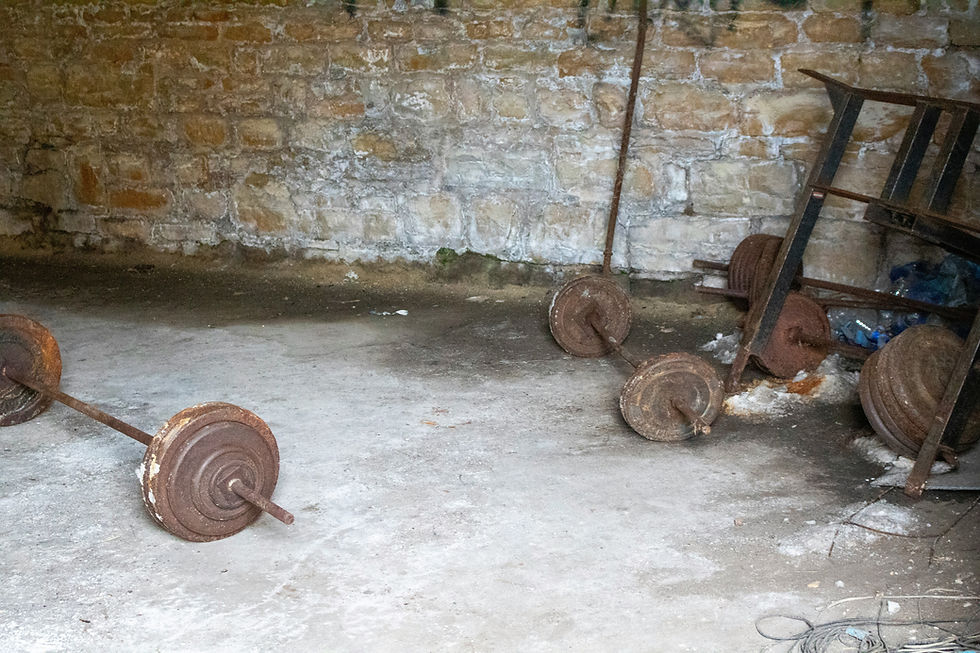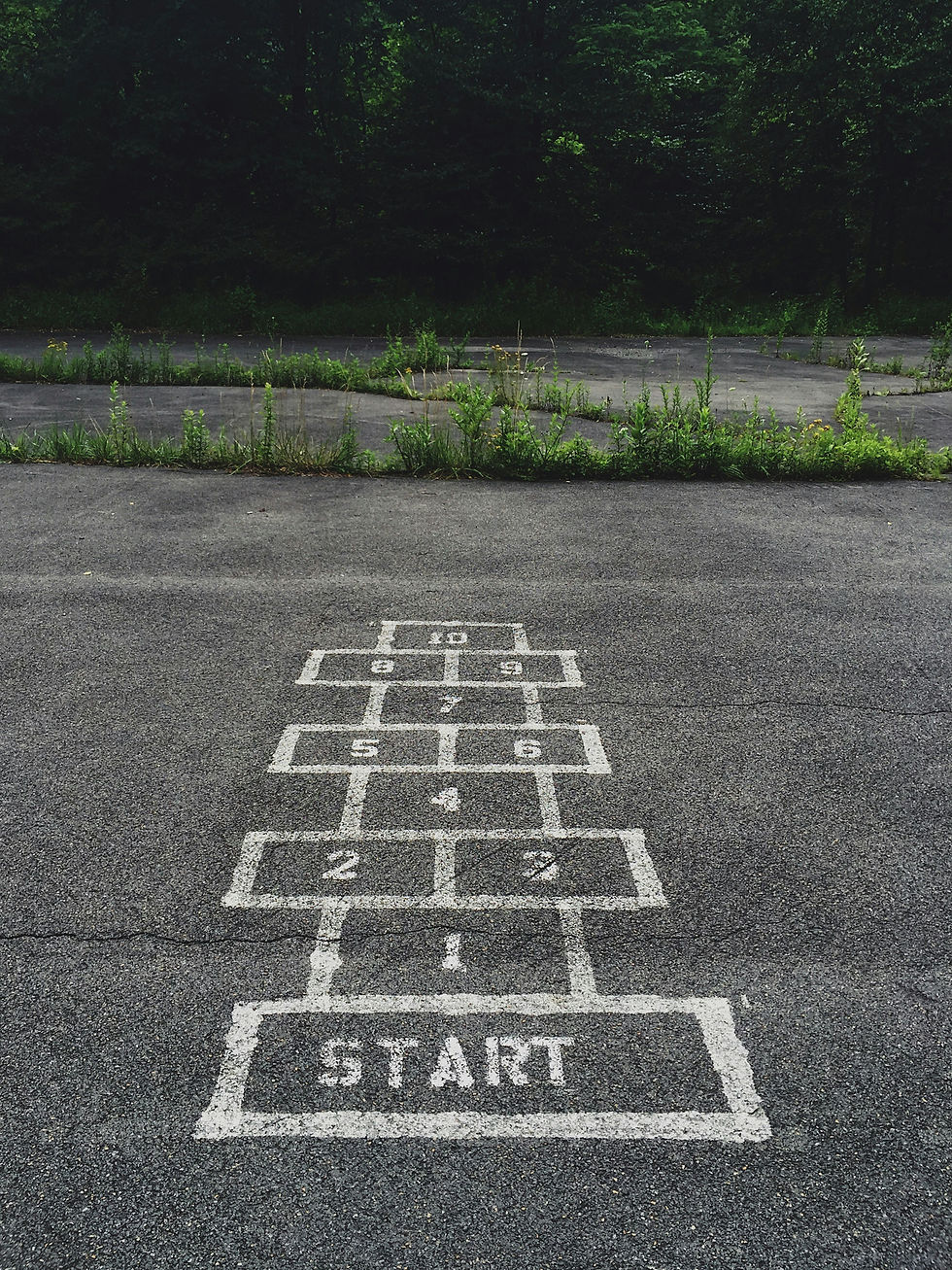Height vs. Weight: The Tale of Two Numbers
- PotatoToPathfinder

- May 6, 2025
- 5 min read
Let’s talk numbers. On paper, mine don’t look that bad—or at least that’s what I keep telling myself. I’m 185 cm tall (6’1” for the imperial crowd), and I weigh 108 kg (238 lbs). Sure, I’m on the heavier side, but it’s not like I’m tipping the scales into “record-breaking” territory. If you just looked at those numbers, you might think, “Eh, not too shabby. Could be worse.”
But here’s the kicker: those numbers don’t tell the full story. Not even close. Because what those numbers fail to reveal is the harsh reality hiding behind them—there’s no muscle left in that 108 kg. None. Zero. Zilch. It’s like my biceps packed their bags and left years ago, taking my triceps, quads, and abs with them. What’s left behind is... well, let’s just say it’s not pretty.
The Illusion of “Not That Bad”

At first glance, 185 cm and 108 kg don’t scream “disaster.” I’ve even had people tell me, “Oh, you carry your weight well!” which is basically a polite way of saying, “You’re big, but at least you’re not rolling down the street like a human marshmallow.” And sure, I don’t look like I’m auditioning for a reality show about extreme weight loss, but that doesn’t mean I’m in good shape.
Because here’s the thing: weight is just a number. It doesn’t tell you what’s actually going on inside your body. It doesn’t tell you how much of that weight is muscle, how much is fat, or how much is leftover pizza still sitting in your stomach. And in my case? That 108 kg is almost entirely fat and fluff. There’s no muscle tone, no strength, no power. Just me, carrying around a whole lot of extra baggage.
The Muscle Mass Mystery
Remember those days when I actually had muscle? Me neither. It’s been so long that I’ve forgotten what it feels like to have strength, to feel solid, to move with purpose. Somewhere along the way—probably around the time I discovered the joy of Netflix marathons and takeout—I stopped using my muscles. And when you stop using them, they disappear.
Now, my arms are more “floppy spaghetti” than “guns.” My legs? They’re like two tree trunks, but not the sturdy kind—more like the ones that are hollow and full of termites. And my core? Let’s not even go there. I don’t have a six-pack; I have a keg.
It’s not just about appearance, either. The lack of muscle affects everything. I get tired faster. My balance is off. I can’t lift heavy things without feeling like I’ve just run a marathon.
The Reality Behind the Numbers
The truth is, 108 kg doesn’t sound so bad until you realize what it’s made of. If I were 108 kg of muscle, I’d look like a Greek god. People would stop me in the street to ask for workout tips. But instead, I’m 108 kg of... well, let’s just call it “potential.”
And that’s the frustrating part. I know I could do better. I know I could be stronger, leaner, and healthier. But instead of building muscle, I’ve spent the last decade building a collection of excuses. “I’m too busy.” “I’ll start next week.” “One more slice of pizza won’t hurt.” And here I am, 45 years old, with a body that feels like it belongs to someone much older.
Should You Use Numbers? Absolutely—If They Help You
Now, don’t get me wrong—numbers can be helpful. If you’re someone who thrives on tracking progress, by all means, use the numbers. Weigh yourself, grab a measurement tape, track your waist, chest, arms, legs—whatever works for you. And don’t forget the mirror. Sometimes the best way to see progress is to look at yourself, not just at the scale.
But here’s the thing: numbers aren’t for everyone. They’re not for me. I know myself, and I know that if I start measuring my waist with a tape, I’ll get mad when the results don’t show up overnight. I’m not patient enough to wait for those tiny incremental changes. I’ll obsess over every millimeter, every gram, and it’ll drive me crazy.
For me, the journey isn’t about numbers. It’s about feeling better, moving better, and being able to climb a flight of stairs without feeling like I need an oxygen tank. So, if you’re like me and numbers make you want to throw a scale out the window, skip them. Focus on how you feel, how you move, and how your clothes fit. Progress isn’t always about the numbers—it’s about the bigger picture.
What Those Numbers Don’t Show
Numbers like height and weight are just the tip of the iceberg. They don’t show you:
The stiffness in my joints from years of sitting.
The huffing and puffing after climbing a single flight of stairs.
The fact that my posture resembles a question mark more than an exclamation point.
The complete and utter lack of energy that makes even the simplest tasks feel like a Herculean effort.
Most importantly, those numbers don’t show the potential I’m wasting. They don’t show the strength I’ve lost, the fitness I’ve ignored, or the health I’ve taken for granted.
The Wake-Up Call
Here’s the thing: I’m not writing this to beat myself up. I’m writing it because I need to face the truth. I need to stop hiding behind the illusion that “185 cm and 108 kg isn’t that bad.” Because it is bad. Not because of the numbers themselves, but because of what they represent—a body that’s been neglected, muscles that have been abandoned, and a life that’s been lived mostly from the comfort of a chair.
But the good news? It’s not too late. Muscles can be rebuilt. Strength can be regained. Health can be restored. It’s going to take time, effort, and probably a lot of sweat (and maybe some tears), but it’s possible.
The Bottom Line
185 cm and 108 kg might not sound like a disaster, but the reality behind those numbers tells a different story. It’s a story of lost muscle, wasted potential, and a body that’s begging for some TLC.
So, here’s the plan: I’m going to stop focusing on the numbers and start focusing on what they actually mean. I’m going to stop making excuses and start making changes. And maybe, just maybe, one day I’ll look at those numbers and feel proud of what they represent.
For now, though, it’s time to roll up my sleeves (if I can still find them under my arms) and get to work. Because this body isn’t going to fix itself. And honestly? It’s about time I gave it the attention it deserves.
Let’s see what this 108 kg of potential can really do.



Comments